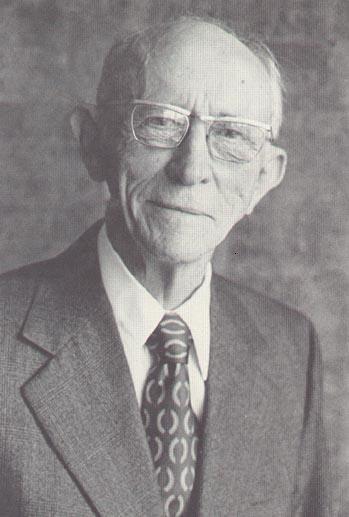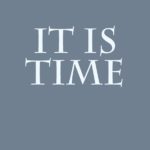Description
Rest for the Weary
by
VANCE HAVNER
2015
Contents
- “By the Old Millstream” 5
- An “Off” Morning. 7
- A Morning “Off” 9
- A Countryman’s Lament 11
- Corn Bread. 13
- A Bird Lover Beset 15
- “Flexible” 17
- Homemade Ice Cream.. 19
- “Let Us Go On” 21
- Flying High. 23
- Morning Stroll 25
- Binoculars. 27
- Reverie at the Kitchen Sink. 29
- ‘‘How did You Get Along?” 31
- Prophet’s Helper 33
- “Mammaw” 35
- “How Dear to My Heart…” 37
- Escape from “Progress” 39
- Miracle After Forty. 41
- A Lesson from the Blackpolls. 44
- Little Boy Gone. 46
- The Music Box. 48
- “Just a Closer Walk with Thee” 50
- “The Art of Driftwood” 52
- The Impetus of the Homeward Trudge. 54
- The Piece and the Pie. 56
- Pewee Notes. 58
- A May Morning. 60
- Rest for the Weary. 62
- The Unexpected Delight 64
- Journey Into Yesterday. 66
- Ticket for Home. 68
- Before the Fire. 70
- Autumn Again. 72
- October Stroll 74
- The Other Side of the Road. 76
- Un-American Activity. 78
- Married—and Happy. 80
- Headquarters 82
- Windows of Heaven. 84
- Letter to Santa Claus. 86
- The Little Christmas Tree. 88
- A Florida Reverie. 90
- Take Sides with Your Faith. 92
- Cheap Stuff 94
- “Seek Ye the Lord” 96
- The Double Investment 98
- Everything Can Wait 100
- From One Preacher to Another 102
- Finis. 104
Foreword
IT HAS BEEN A LONG time since my boyhood days in the country. My ministry has required living much on trains, in hotels, in crowded cities. I have escaped from the bedlam at every opportunity and have endeavored to find time and make a place to express that love of the outdoors which has meant so much to me in body, mind, and spirit. I have compromised on a city park when country woods were not available. I have resorted to various devices in order to be still and rest awhile. This modern age has conspired to steal from the soul of man the spirit of reflection and contemplation. One must put up a never-ceasing fight to maintain as much of it as possible in the modern madhouse miscalled Progress. There is encouragement for such a spirit in the Bible. There was much of it in the life of our Lord. It is a note almost forgotten, and we are paying a high price for our neglect. May these meditations help some harassed soul, some sheep in the hounded flock, to find balm in Gilead and rest for the weary.
Vance Havner
1. “By the Old Millstream”
AFTER WEEKS OF preaching, I sit this morning deep in the April woods. I have escaped to my haunt far from the babel of telephones and traffic. Here “by the old millstream” I am hidden on one of those perfect days when nature is in tune to a pitch that would have satisfied Lowell and all other poets. The woods are that first tender green before they get “set,” that early shade that passes all too soon into the full foliage of summer.
The birds are all here. The warblers swarm through the trees in more varieties than I can identify. How rusty I am on my bird lore! Of course, my old reliables—the cardinal, towhee, mockingbird, wood thrush, white-throated and song sparrow— form a familiar background. The yellow-breasted chat acts as crazy as ever. The yellow-throat is at it again with his “witchity-witchity-witch.” The prairie and pine warblers and the vireos are back. I heard the plaintive pewee and now an indigo bunting.
I have with me a tattered pocket bird guide, the same one I used on the farm at home in my teens. There are notations in it that remind me I had better number my days and apply my heart unto wisdom. Here is one dated April 26, 1917, when I saw a hooded warbler. That is thirty-six years ago! Here is where I saw a Blackburnian warbler twenty-six years ago and a chestnut-sided warbler twenty-four years ago. Besides a nostalgia for scenes and times long past, this adds a sweetly solemn note:
Only one life,
’Twill soon be past;
Only what’s done for Christ will last.
What healing there is in the woods! What blessed sanctuary where one may reaffirm his faith and renew his strength. What ails us today that it takes a gun or golf to lure us away from the tumult we sadly misnamed Progress? I thank God that early in boyhood, deep in the hills, He put me in love with woods and birds and that all the cities and hotels and modern living do but whet my appetite to return to my native habitat.
My Bible verse this morning says: “And Isaac went out to meditate in the field at eventide” (Gen. 24:63). Isaac would get a lot of hard looks today if he ventured forth without gun or golf clubs just to be still and think. Your average efficient American rushing to his next engagement as fast as his ulcers will allow would make no sense of Isaac out on such an errand. He might dismiss him as being off in the head or maybe as a spy who ought to have a look from the F.B.I. There is no place for contemplative Isaacs in this present set-up. The prince of this world has cleverly geared everything to choke out all but the go-getters. And when you watch them go and see what they get, you wonder why a generation that calls itself intelligent ever got taken for such a ride or sold down the river on such a deal.
This morning I highly resolve to live out my days an unreconstructed rebel. After thirty-six years I reaffirm my love for woods and warblers and enter in my old bird guide that I am still keeping the faith. I have to get into the madhouse of present-day living, but I am no more in love with the babel we have built and its confusion of tongues than years ago when I left Weeksville by the still waters for a weekend of preaching in Philadelphia.
Gypsy Smith said: “I grew up in a field; don’t put me in a flower pot.” And greater than he in the Fraternity of the Fields is One who walked Galilean country roads and drew His illustrations from nature’s world around Him. In this, as in all else, let me walk as He walked!
2. An “Off” Morning
THIS IS NOT ONE OF the best mornings at the Old Mill. There is a cold breeze from the north and a thin haze over the sun. The birds are trying to be cheerful, but it is a little difficult to do one’s best singing on a drab morning. A little blue-gray gnatcatcher is chattering amiably in front of me. His song is a faint bit of music, but very pleasant. More vociferous is the gurgling wren yonder. Out on the lake a turtle is sunning himself on a log. But he is getting weak sunshine through this curtain of clouds. I am going to stay here a while and see who wins, the sun or the clouds. If old Sol takes a beating I will fold my tent like the Arab and silently steal away.
All days cannot be ideal, even at the Old Mill. This world is not set up for idyllic living now. Nature’s moods have their counterpart in the spiritual. We are not here for a vacation but for a vocation. But this world is ideal for victorious living. Our Lord lived a varied life of storm and sunshine, tears and joy, tragedy and triumph. There were quiet days at Bethany and there was Calvary. He said, “In the world ye shall have tribulation: but be of good cheer; I have overcome the world.”
I would not care to live in any clime where the weather was always the same, where the seasons did not come and go. I like a mixture. God has mingled the ingredients of our fare so that we are not surfeited with one steady diet. Some days are dismal and unwelcome. But no day ever comes that cannot be made victorious. And the very worst can be made to mean most. Every morning cannot be a perfect May morning. If it were so in our natural world we would soon starve to death. It takes all kinds to produce the food we eat. You cannot live on sunshine and singing birds. The darkest days are contributing to our well-being. Soil and seed demand more than fair weather. All the diverse elements work for our good. And “all things work together for good” to the Christian. They are not all good in themselves but they can be made to feed the soul and produce character. That is what we are here for, not to explain or endure or enjoy the world so much as to overcome it. And “this is the victory that overcometh the world, even our faith.”
As I stood writing this, a very energetic young flycatcher and his mate came by. They were going somewhere in dead earnest and tarried but a little while, if I had tried to find them, I might never have run them down, so elusive are they. But I stood still and they came to me. This is the day of the Go-getter. They get a lot of things, including high blood pressure. But some of life’s best things evade the Go-getters. You just can’t run them down and take them by force. But stand still and they tome to you. Maybe we ought to give the Go-getters a rest and say a good word for the Stand-stillers. “Be still and know that I am God.” “Stand ye still and see the salvation of the Lord.” “Stand still and consider the wondrous works of God.”
P.S. Old Sol has won! I’m glad I stood still and waited.
3. A Morning “Off”
THERE WERE Letters to write and other things to do this April morning but I escaped to the Old Mill. One never catches up, anyway, so why worry? If we wait until we have done all that modern living expects of us and filled all the engagements this hectic age demands, we would never hear a bird nor see a flower. So I just “skip it” and jump off the merry-go-round now and then. Business men, rushing to work in their cars— some of them ought to walk—eye me askance. My walking stick is a curiosity in a day of golf clubs. And what business can any man have at the Old Mill?
Well, here I am, anyway, and this is one morning nothing can take from me. It is another that I have salvaged from the modern grind and it is safely deposited in the treasure vault of my memories. Any morning spent in meditation and prayer is part of the heavenly bank account. Rust and moth cannot corrupt it nor can thieves break through and steal.
We are not meant to spend all our time at Old Mills in sylvan hide-outs. We are not to make a vacation of what should be a vocation. There is work to do out where cross the crowded ways of men. But our Saviour, for all His busy three years, never allowed His public ministry to crowd out His private meditation. He betook Himself to a solitary place and prayed. He spent all night in prayer. He sought mountains and lakes and lonely spots. He would have His disciples come apart and rest awhile.
If one waited until such opportunities presented themselves, he would die of old age—no, of a heart attack—still waiting—and working. You simply have to make up your mind, tear a page off the calendar and let this busy world get along without you for a day. You will discover when you return that, somehow, it made out. And you serve it better next day for getting away from it the day before.
It has been a glorious morning in the woods. Spring has come. New voices have joined the bird choir. I stopped awhile to listen to the field sparrow, not that there is anything striking about this plain-garbed old-timer, but because his familiar trill turned time backward in its flight. I recalled my boyhood on the farm, when, on stifling hot days, he was the only songster who could muster enough strength to strike a tune. How bird songs do get identified with precious memories and seem to gather up tender experiences of the past! The song of the wood thrush always seems to distill evening scenes of early years back in the hills when he was the vesper soloist at the end of a perfect day.
It has been good to be still this morning, to think things over and evaluate them afresh, to get new bearings for whatever remains of our days. Nothing can steal this day from me. It is safe from depressions, bombs, and taxes. I have minted coins that pay eternal dividends.
Take off a morning if you can. It pays. The best cure for “off mornings” is to take a morning off!
4. A Countryman’s Lament
I AM PREACHING this week in one of our great cities. My room in a big hotel looks down into the very hub of the metropolis. I would never be caught in a place like this in springtime if my work did not require it. I am counting the days until I can get out of here and back home and out to my favorite hide-out by the Old Mill. I almost begrudge every day I cannot be out in the woods at this precious time of year before everything gets set in the maturity and heat of summer.
As I grow older and travel in the pandemonium of modern living, the more I listen to lobby and lounge car chatter about golf and horse racing and stocks and bonds and all the feverish round of eating and drinking, marrying and giving in marriage, buying and selling, planting and building, that make up these modern days of Noah and Lot before the curtain rings down, the more I realize what these poor mortals have missed by not growing up back in the hills. I confess that I am not much impressed by what goes for high-class living these days.
If you never have known what it means to sit on the front porch (back when houses had porches), in a rocking-chair (back when we had rocking chairs and before we improved them), if you have never rested thus in the country in the evening, you haven’t lived. The nighthawk is zooming way up in the gathering darkness, the whip-poor-will is going strong over in the woods, and from down in the swamp an old screech owl is making his opening remarks. Maybe it is fall of the year and you hear hounds baying in a full-scale possum hunt deep in the woods. Or some hillbilly troubadours are on their way to a corn-shucking and you can make out the fiddler, the banjo picker, and the fellow with the “git-tar.” That is real living, brother, in case you don’t know, and it would help your ulcers if you could find such a place once more.
Such places are hard to find. I go back sometimes to where I grew up, but although you can still sit out on the porch, there’s a highway in front of the house and automobiles make havoc of your reverie. Progress, alas, has hit even these parts. The hillbillies have all gone on the radio, and the country folks are looking at television. I’m like Rip Van Winkle after his long snooze if I try to recover some of the atmosphere of days gone by. I’m eyed suspiciously if I express a longing for the old days.
The other day I hunted up some old magazines in a library just to browse in the world of forty years ago. A fussy little librarian just couldn’t understand what I was doing in that musty corner. “They’re out of print” she advised me. I smiled meekly. It was evident they were back numbers since they were dated 1914. “You won’t get much out of them,” she added. Well, that would depend on what one is after. No use trying to explain. She wouldn’t know. I strolled out on the street and started dodging automobiles.
If you’ve got something that is the very latest, don’t show it to me. If you can show me the very oldest, I’m interested. It’s a hard day for a preacher who is trying to show folks the old paths, where the good way is, where we may find rest for our souls.
Ho hum! How many more days will it be until I can start home!
5. Corn Bread
WAITRESSES IN Cafeterias often look in wonderment when, at supper time, this scribe passes by the roast beef and other high-priced vittles and ends up with several corn muffins, a couple of pats of butter, and a glass of milk. It is not Scottish blood or an ailing stomach that chooses such an evening meal. I grew up on a supper fare of corn bread and milk. We had to every evening and never tired of it. I could subsist day by day even now on such fare, but modern corn bread is a poor substitute, as are most modern substitutes, so the best I can do is to approximate the old as nearly as I am able.
Corn bread represents a coarse diet of hog jowl and turnip greens, now out of date or dignified by daintier terms. Our refined rations have played havoc with us, and health foods now flourish as we make desperate effort to revert to rugged eating. Our poor stomachs have revolted in the gastronomical nightmare of drug-store cuisine. Many a poor wreck, his medicine closet full of pills and powders, would profit from a return to corn bread.
There is something in the religious world that corresponds to corn bread. Some of us grew up on coarser doctrinal fare. Compare old-fashioned sermons to most present-day sermonettes and it is as corn bread beside cream puffs. Old hymns and modern religious ditties check up the same way. And Christian living itself has been presented, especially to youth, as a tra-la-la sort of sanctified hayride instead of pilgrimage and warfare. Measured by the corn-bread-cream-puff analogy, it is a delicatessen repast instead of a solid fare of rugged vittles. Too many modern saints are nibbling eclairs and pastries at home and in church, to say nothing of the concoctions offered by the world, the flesh, and the devil.
When Paul declared that the time would come that men would not endure sound doctrine, he had in mind the cream-puff age. Our Lord Himself drove His crowd away once by declaring, “Except ye eat my flesh and drink my blood, ye have no life in you.” Many of His disciples went back and walked no more with Him. Listeners said, “This is an hard saying; who can hear it?” To the twelve He said, “Will ye also go away?” Peter recognized the power of his Lord’s words and stayed by that Heavenly Fare. Let it be observed that our Lord called Himself the Bread of Life. And it is His words that we feed on, He was careful to explain. There is nothing dainty about this Bread. It is not a collection of ethical cookies, sweet nothings that melt in the mouth. Preach the com bread of solid truth today and watch the multitude head for popular religious soda fountains and ice-cream parlors.
The Book tells us of a generation that heaps to itself teachers having itching ears. Transfer the itching area from the ears to the palate and you have a finicky age that cannot endure corn bread so heaps to itself chefs who serve cream puffs.
Could we return from cream puffs to corn bread, we might develop a hardier race of saints in these last days. It would not be so ironical then to sing, “Break Thou the Bread of Life, Dear Lord, to Me.” The diet of the average Christian today is pitiful to contemplate. Conversion to corn bread is long past due.





Reviews
There are no reviews yet.